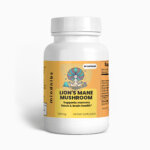
“Food Allergies and Intolerances: How Supplements Can Make a Difference”
Are you one of the millions of people who suffer from food allergies or intolerances? If so, you know firsthand how difficult it can be to navigate the world of food without encountering uncomfortable or even dangerous symptoms. But what if there was a way to ease some of those symptoms and make life a little easier? Enter supplements. From probiotics to digestive enzymes, there are a variety of supplements that may be able to help manage food allergies and intolerances. In this article, we’ll explore the science behind these supplements, how they work, and which ones may be right for you. So, if you’re tired of constantly feeling at odds with your diet, read on to discover how supplements could make a difference in your life.
1. Introduction: Understanding Food Allergies and Intolerances
Food allergies and intolerances are becoming increasingly common. These conditions can range from mild to severe and can cause symptoms such as digestive problems, skin reactions, and respiratory issues. It is essential to understand the difference between allergies and intolerances to properly manage these conditions and prevent potentially life-threatening reactions.
Food allergies are immune system responses to specific foods. When the immune system identifies a particular food as harmful, it releases antibodies to fight off the proteins. These antibodies can cause a range of symptoms, including swelling, itching, and digestive issues. In severe cases, a person may experience anaphylaxis, a severe allergic reaction that can cause difficulty breathing, a drop in blood pressure, and even death.
Food intolerances, on the other hand, do not involve the immune system. They occur when the body has difficulty digesting a particular food, such as lactose in dairy products. Symptoms of intolerance can include abdominal pain, bloating, and diarrhea. While intolerances may not be life-threatening, they can be uncomfortable and impact a person’s quality of life. It is important to understand the difference between allergies and intolerances to ensure proper treatment and management.
2. The Limitations of Diet Alone in Managing Food Allergies and Intolerances
For many people with food allergies or intolerances, a change in diet can be a crucial step towards managing their symptoms. However, it’s important to recognize that diet alone has its limitations and may not be enough to fully manage these conditions. Here are some reasons why:
- Cross-contamination: Even if you avoid the particular food that triggers your allergy or intolerance, it’s still possible to accidentally ingest it through cross-contamination. For example, if a utensil used to prepare your food was also used to prepare a dish with your allergen, you could still have a reaction.
- Hidden allergens: Many processed foods contain hidden allergens, such as milk proteins in non-dairy creamers or wheat derivatives in soy sauce. It’s important to carefully read ingredient labels and be aware of potential sources of cross-contamination.
- Nutritional deficiencies: Eliminating certain foods from your diet can lead to nutritional deficiencies if you don’t supplement with the necessary vitamins and minerals. For example, a dairy-free diet can lead to a calcium deficiency, and a gluten-free diet can lead to a lack of certain B vitamins.
While diet is an important component of managing food allergies and intolerances, it’s important to also consider other strategies, such as medication, avoidance of triggers, and consultation with a healthcare professional. Together, a multi-pronged approach can help ensure the best possible outcomes for those with these conditions.
Additionally, it’s worth noting that managing food allergies and intolerances can be stressful and time-consuming. Seeking support from friends, family, and support groups can be helpful in coping with the social and emotional impact of these conditions. Ultimately, by taking a holistic approach to managing food allergies and intolerances, individuals can enjoy a better quality of life and feel empowered to take control of their health.

3. The Role of Supplements in Supporting Digestive Health
Good digestive health is critical to overall wellness. Unfortunately, our modern diets and lifestyles can make it challenging to keep our digestive systems on track. The good news is that supplements can play an essential role in supporting digestive health. Here are three ways that adding supplements to your daily routine can make a difference:
1. Enzymes: Digestive enzymes are proteins that help break down food into more manageable components. Adding a digestive enzyme supplement can ease the burden on your digestive system, especially if you struggle with bloating or indigestion. Look for a product that contains a variety of enzymes, including amylase, protease, and lipase, to ensure you’re getting the full range of digestive support.
2. Probiotics: The bacteria in our gut play a critical role in our overall health. Adding a probiotic supplement can help restore balance to your gut bacteria, especially if you’ve recently taken antibiotics or have been under a lot of stress. Look for a product that includes a variety of strains and make sure the CFUs (colony-forming units) are listed clearly on the label.
3. Fiber: Fiber is important for digestive health as it moves waste through your system and helps prevent constipation. If you’re not getting enough fiber in your diet, adding a fiber supplement can help. Look for a product that contains a blend of soluble and insoluble fiber, such as psyllium husk, flaxseed, and chia seeds, to maximize the benefits.

4. Key Supplements for Managing Food Allergies and Intolerances
Living with food allergies and intolerances can be life-altering. However, with the right supplements, you can help manage symptoms and improve overall health. Here are three supplements that are key for managing food allergies and intolerances:
- Probiotics: Probiotics are essential for gut health and can help alleviate symptoms of food intolerance. They can improve digestion, reduce inflammation, and promote overall immune health. Be sure to look for a high-quality probiotic with multiple strains and live cultures.
- Quercetin: Quercetin is a powerful antioxidant that has been shown to help reduce inflammation and allergic responses. It is often used in conjunction with other supplements for managing food intolerances. It can be found in supplement form or in foods like onions, apples, and berries.
- Vitamin D: Low levels of vitamin D have been linked to increased risk of food allergies and intolerances. Vitamin D is essential for immune system function and can help reduce inflammation. You can get vitamin D from sunlight, fatty fish, and supplements.
In addition to these supplements, it’s important to consult with a healthcare professional before starting any new supplement regimen. They can help determine the best supplements for your individual needs and make sure they won’t interact with any medications you may be taking. With the right supplements and professional guidance, managing food allergies and intolerances can become much more manageable.
5. How Supplements Can Help Address Nutrient Deficiencies
One way to address nutrient deficiencies is by incorporating supplements into your daily diet. While no supplement can replace a healthy, balanced diet, they can provide additional support to help fill in the gaps. Here are a few ways supplements can help tackle nutrient deficiencies:
- They can provide essential nutrients: Many supplements, such as multivitamins, are designed to provide various essential nutrients that may be lacking in your diet. For example, if you’re not a fan of leafy green vegetables, taking a vitamin K supplement can help ensure you’re getting enough of this micronutrient.
- They can enhance nutrient absorption: Some supplements contain ingredients that can help improve nutrient absorption. For example, taking vitamin C alongside iron can help increase the amount of iron that gets absorbed by the body.
- They can support specific health conditions: Certain supplements can also be helpful for addressing specific health conditions. For example, taking calcium and vitamin D supplements can help support bone health and prevent osteoporosis.
While incorporating supplements into your diet can certainly be helpful, it’s important to keep in mind that they should never replace a healthy diet. Supplements are intended to supplement, not replace, a balanced intake of nutrients. Additionally, it’s always a good idea to consult with a healthcare professional before starting any new supplement regimen.
6. Potential Benefits of Supplements for Reducing Inflammation and Improving Immune Function
Supplements have been known to play an essential role in reducing inflammation and improving immune function in an individual’s body. Since inflammation can lead to several chronic diseases, controlling it can be beneficial for one’s health. Let’s take a closer look at some .
1. Reduced Inflammation:
Certain supplements such as tumeric, omega-3 fatty acids, and vitamins C and D may help reduce inflammation in the body. These anti-inflammatory agents can be predominantly helpful for individuals suffering from chronic inflammation-related ailments such as arthritis, lupus, and other autoimmune disorders. These supplements can help to reduce the proinflammatory cytokines and molecules in the body, eventually lowering inflammation levels.
2. Improved Immune Function:
Supplements play a critical role in maintaining and enhancing immune system function. Vitamins C and D, zinc and other micronutrients in supplements can help manage the immune response by regulating the various immune cells that fight off infections and diseases. These supplements can assist in generating a stronger immune response, leading to higher immunity levels, thus protecting the body from various infections and illnesses.
3. Overall Health Benefits:
Supplements for reducing inflammation and improving immune function can have numerous health benefits. Not only can they enhance the immune system and reduce inflammation, but they may also help reduce the risk of developing chronic diseases and promote overall health and wellness. These natural remedies are effective and safe when taken in recommended dosages.
In conclusion, supplements can play a significant role in reducing inflammation and improving immune function. With numerous health-related benefits, it is essential to include these supplements in daily diets. However, it is essential to consult with a healthcare professional before starting any supplements, and with their guidance, you can lead a life full of vitality and wellness.
7. Conclusion: Coordinating with Your Healthcare Provider to Optimize Your Supplement Regimen
It is crucial to coordinate with your healthcare provider when it comes to optimizing your supplement regimen. Doing so can help ensure that you are achieving the maximum benefits of supplementation while minimizing any potential risks or interactions with other medications. Here are a few key takeaways to remember.
- Be transparent about your supplement use: Your healthcare provider cannot make informed decisions about your health without knowing the full picture of what supplements you are currently taking.
- Seek professional advice: Not all supplements are beneficial or necessary for every individual, and dosages can vary widely depending on the person. Your healthcare provider is best equipped to make recommendations tailored to your specific health needs.
- Be patient and consistent: Most supplements take time to work and require consistent use to achieve maximum benefits. Don’t give up on a supplement too quickly, and make sure to take it exactly as recommended by your healthcare provider.
By coordinating with your healthcare provider, you can optimize your supplement regimen to better support your overall health and well-being. Take responsibility for your own health and work collaboratively with your provider to achieve the best possible outcomes. Remember, good health is a journey, and it’s important to have the right tools and support along the way.
In conclusion, understanding the source and symptoms of food allergies and intolerances is the first step in determining if vitamin supplements are the right treatment. With the help of qualified health care professionals, these issues can be addressed in an effective manner, helping to improve overall health and wellbeing.

























